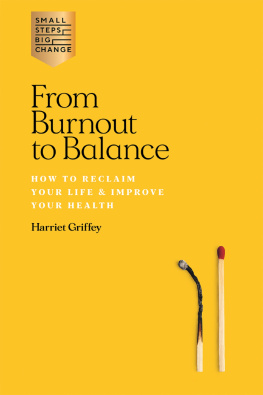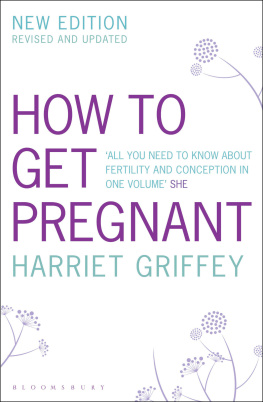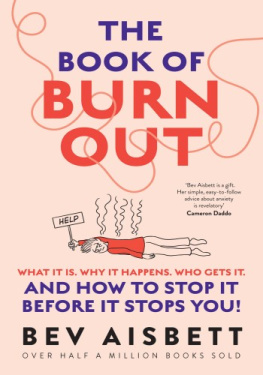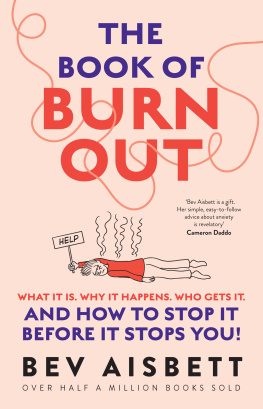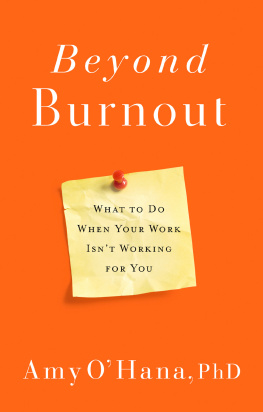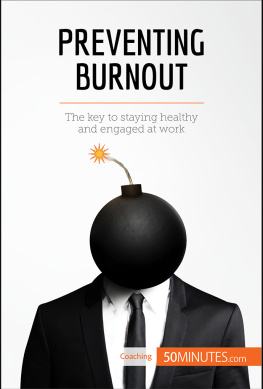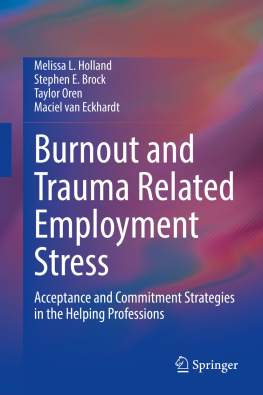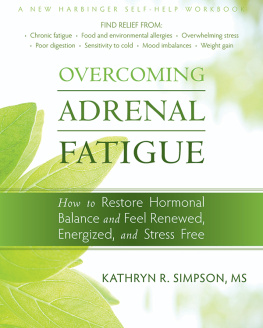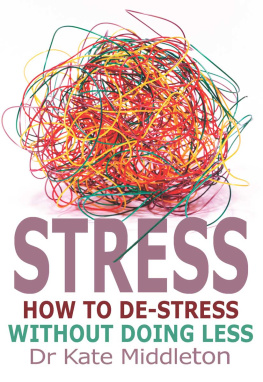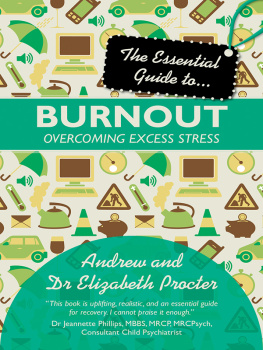
activities, shared
adrenal glands
adrenaline
alcohol
alpha brain waves
amygdala
antioxidants
anxiety
and emotional self-regulation
exercise and
medication
melatonin and
omega-3 fatty acids and
rumination and
social isolation and
uncertainty and
apps
atrial fibrillation (AF)
autonomic nervous system (ANS)
balance: first steps to
recovery plan
work-life balance
baseline: altered
normal
resetting your
baths
biophilia
blood pressure
the brain: brain fog
rewiring
brain-derived neurotrophic factor (BDNF)
Bramson, Dr Robert
Bratman, Gregory
breaks, taking
breathing: breathing exercises
shallow breathing
bullies
Bullmore, Edward
burnout: 24-hour crisis plan
avoiding
burnout quiz
identifying the problem
long-term impact of
Maslach Burnout Inventory (MBI)
pandemic-induced
signs & symptoms of
when to ask for help
WHO definition
caffeine
carbohydrates
catastrophising
central nervous system
chronic fatigue
cognitive behavioural therapy (CBT)
colleagues
commutes
continuous partial attention (CPA)
coronavirus
cortisol
counselling
creativity
crisis plan, 24-hour
depression
alcohol and
CBT and
and emotional self-regulation
exercise and
medication
omega-3 fatty acids
rumination and
serotonin and
social isolation and 64 diet
Dines, Christopher
discontent, social media and
dopamine
downtime
EMDR (eye movement desensitisation reprogramming)
emotions
endorphins
environment, workplace
exercise
and BDNF
calming
and endorphins
mindful
pre-bed
and stress hormones
exhaustion
expectations, workplace
fatigue
fats
fertility problems
fibre
fight/flight/freeze response
Firestone, Lisa
FOMO (fear of missing out)
food
foods to avoid
foods to increase
free radicals
GABA
gardening
Garg, Dr Parveen
genes, our well-being and
gig economy
glucose
Glycaemic Index (GI)
group therapy
habits, reinforcing new
happiness, baseline level of
heart problems
help, asking for
hippocampus
hobbies
hormones, feel-good
Horta-Osorio, Antnio
HPA axis
hugs
hurtful words
hydration
hyperventilation
hypothalamus
immune system
inflammation
insomnia
Institute of Stress Medicine
isolation
JOMO (joy of missing out)
judging yourself or others
Leiter, Professor Michael
life-work balance
limbic system
loneliness
lunch breaks
maladaptation
Maslach Burnout Inventory (MBI)
medication
meditation
melatonin
micro-interruptions
millennials
MIND
mindfulness: meditations
mindful living
mindfulness-based cognitive therapy
minerals
multitasking
music
Myers, Benjamin
nature
negativity
Neve, Jan-Emmanuel de
news
nicotine
omega-3 fatty acids
optimism
outdoor environments
overtime
oxidation
oxytocin
pandemic-induced burnout
parasympathetic nervous system (PNS)
personality types
perspective, sense of
Pichai, Sundar
pituitary gland
play
post-traumatic stress disorder (PTSD)
processed foods
productivity
protein
psychotherapy
recovery plan
relationships
repetitive strain injury
resilience
rumination
Sandburg, Sheryl
screen time
sedentary lifestyles
self-acceptance
self-care
self-esteem
self-help
serotonin
sex
sick days
sleep
bedtimes
insomnia
snowflake generation
social media
Stone, Linda
stress: being stress smart
chronic
continuous low-level
definition of
exercise and
expectations and
and fertility
how to manage
inflammation and
personal stress responses
sleep and
social media
understanding
workplace
stress hormones
alcohol and
effect of the news on
exercise and
and fertility
the heart and
hyper-alert state
sleep and
stretches
supplements
sympathetic nervous system (SNS)
Takotsubo cardiomyopathy
talking treatments
therapy
time management
time out, taking
to-do lists
tryptophan
uncertainty
vagus nerve
vitamins
work and workplaces
colleagues
environment
expectations
home working
mental health provisions
work life
workplace stress
World Health Organisation
worry
young people, social media and
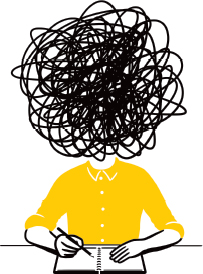
How do you know whether what youre experiencing might be symptoms of burnout?
Do you feel permanently exhausted, wrung out, trapped, angry and dissociated? Do you feel you are working harder and longer but achieving less? Do you constantly feel under the weather, or suffer from persistent aches, pains, niggles and minor illnesses that wont go away?
Can you tick these three boxes without a seconds hesitation?
Emotional, mental and/or physical exhaustion that isnt alleviated by sleeping............................
An increasing sense of being cut off from yourself and from other people............................
Feeling that you are less effective at doing what youve always done, either at work or at home............................
If you feel youve reached this stage, burnout isnt just an emotional state: theres also a significant physical effect on your health. One will impact on the other, affecting how you feel both physically and emotionally. Living in a constant state of low-level stress, with an increasing reliance on your stress hormones to keep you going, can lead to adrenal exhaustion. If you reach a point of total collapse, it takes a long time to come back from.
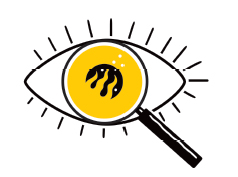
One of the difficulties with burnout is that its build-up can be very gradual. Its all too easy to hit crisis point without realising that this is where weve been headed for weeks, if not for months or years. This is because the human body (and mind) is a marvel of adaptation and will, in time, adapt so well to a state of continuous low-grade stress that it begins to feel normal, even while were heading towards burnout.
When we are faced with a stressful situation, the resources we need to manage it will rev up; but once the stressful situation has resolved, our body should then return to its baseline, resting state. However, if we subject ourselves to relentless stress that continuously activates and re-activates our stress response, that baseline moves to a new place of adaptation. But this is actually a place of maladaptation, because its not how we are designed to function in the long term. The damage this may do, and how long it will take to kick in, is difficult to assess because we are all different. However, if we continue down this path it will become unsustainable, the cracks will show, and eventually the dam will break.
Next page
